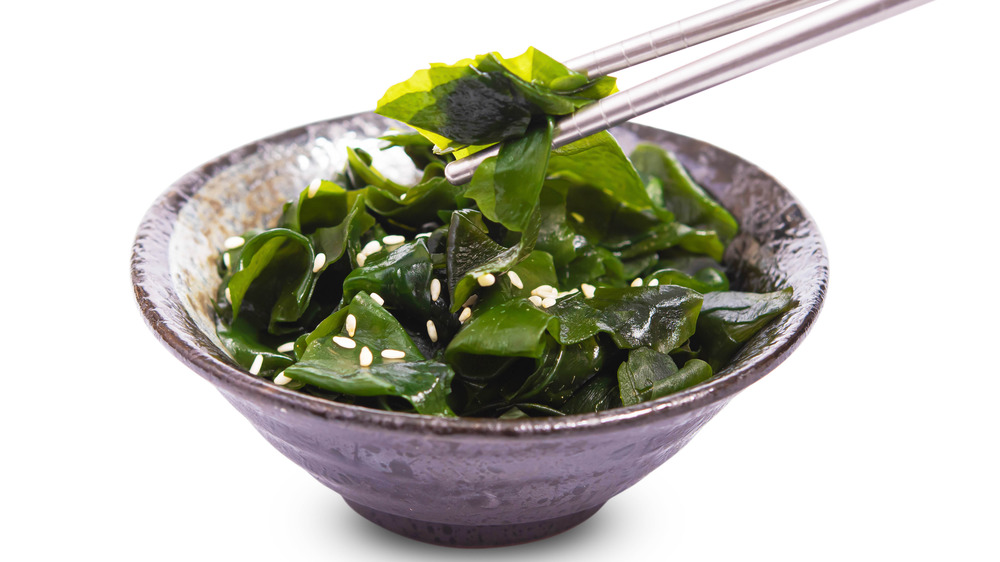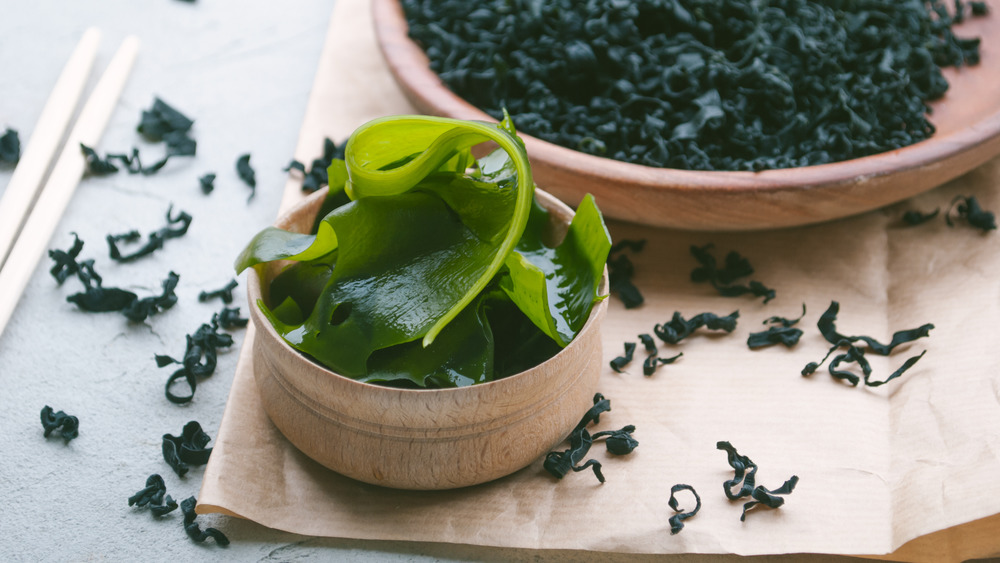Why You Should Consider Adding Seaweed To Your Diet
Seaweed may be found under the sea, but did you know it's been dubbed a superfood that you should be consuming on the reg? Yep, according to Miho Hatanaka, a Japanese-born registered dietitian, in the Japanese tradition, "People really attribute their health and longevity to seaweed, and even healthier skin and hair," she told TIME. And by integrating it into your diet and consuming it daily, you could reap the same benefits. But giving you great skin and hair is not all seaweed can do for you.
Firstly, seaweed is jam-packed with vitamins and minerals, meaning it's way more nutritious than you probably think. "Seaweed is a great source of vitamins A, C, E, K and B vitamins," Rachel Berman, RD, Director of Nutrition for CalorieCount.com, told SELF. "It's also rich in minerals, including iodine, selenium, calcium, and iron," she continued. "Even with a smaller amount of seaweed, you can get a lot more nutrients out of it than ground vegetables," Hatanaka added.
Seaweed is rich in fiber, low in fat, and full of antioxidants
Secondly, seaweed is overflowing with antioxidants, which protect your cells against free radicals. "Seaweed is a source of... potent antioxidants, including alginate and fucoxanthin," dietitian Rachel Fine, MS, RD, CSSD, CDN, told ELLE. Better still, "There is promising research showing potential anti-inflammatory benefits that may relate to reducing the risk of diabetes and obesity." What can't seafood do?!
Thirdly, seaweed is rich in fiber, meaning it can help you stay fuller for a longer period of time. "Seaweed is low in fat but packed with soluble fiber, which helps control blood sugar levels and keeps your bowels moving," Berman told SELF. "The fiber can help you feel full on very few calories."
Dietitian Chelsea Gloeckner, MS, RD, agreed, explaining to ELLE, "Seaweed contains both soluble and insoluble fiber, making seaweed a great prebiotic source to support gut health [as well]."


